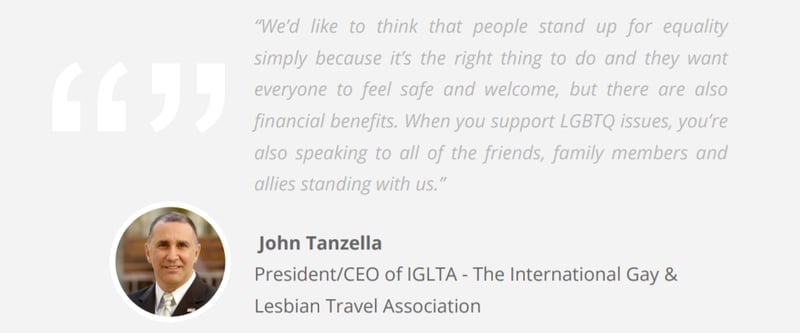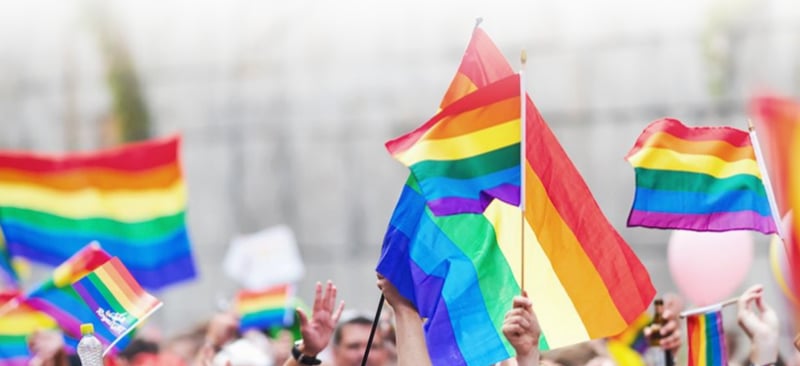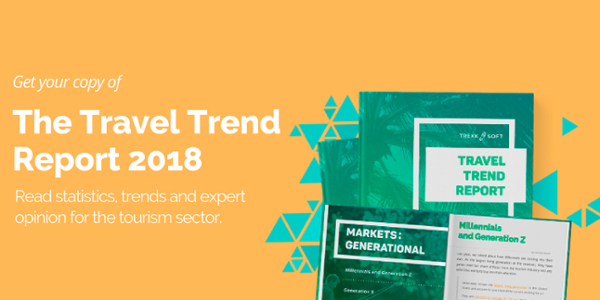Editor's note: This post is an excerpt from our Travel Trends Report 2018, written by Sara Burkhard. You can access the report now.
Lesbian, gay, bisexual, transgender and queer (LGBTQ) tourism has experienced a significant increase in recent years, and we can only foresee more growth. Why? It makes social and financial sense.
Up to 7% of adults are estimated to identify as LGBTQ. And as the Second Global Report on LGBTQ Tourism by UNWTO and IGLTA explains, the LGBTQ segment is recognized to travel more often and demonstrate higher-than-average patterns of spending.
“We’re definitely going to see more destinations and businesses standing up to support LGBTQ tourism in 2018 and beyond – particularly in places that haven’t traditionally been associated with the market.” John Tanzella, IGLTA President/CEO
What is LGBTQ tourism?
According to IGLTA, The International Gay & Lesbian Travel Association, LGBTQ tourism refers to the development and marketing of tourism products and services to lesbian, gay, bisexual or transgender people.
As with everyone, LGBTQ people are incredibly diverse and are looking for different experiences when they travel. Some may lean towards products and services designed specifically with LGBTQ travelers in mind. Others may just look for destinations that ensure them that they will be welcomed and respected at every moment of their trip. IGLTA emphasize that outreach and strategies to serve LGBTQ consumers must not assume that this is one homogeneous group.

Travel trends for the LGBTQ segment
● More ambitious, adventurous trips. This is partly due to a wider global trend, but also thanks to the Internet and the greater acceptance and accessibility it has fostered. While safety is a priority for most LGBTQ travellers, some are also travelling to destinations that are yet to catch up in terms of LGBTQ acceptance, both socially and politically. There are advantages to LGBTQ people pushing boundaries, but as with all travel to hostile destinations, it should be approached cautiously and with an awareness of laws and customs.
● Millennial LGBTQ travellers tend to be more open and comfortable about their sexuality. They expect the same from travel providers, to the extent that it is often not even an issue. These travellers are most likely to want to be marketed to as part of mainstream advertising rather than as a separate group.
● Same-sex marriage is great news for tourism. Couples frequently travel to get engaged, and honeymoons are often one of the most memorable trips of a lifetime. According to a 2016 report by Community Marketing Inc., 80% of couples in the United States of America expected to take a major vacation in the 12 months following their wedding ceremony. The UNWTO Global Report reminds us that the idea of celebration continues throughout the whole trip, and that smart travel providers can provide a uniquely tailored and memorable service for newly-weds.
● Technology has changed LGBTQ travel. As explored elsewhere in this report, the way we dream about, plan and book trips has changed dramatically. Technology has also had a great influence on the visibility of and attitudes towards LGBTQ people and issues. In turn, new destinations and experiences have been opened up and others more readily available for LGBTQ people.
Travel providers have a lot to gain from the LGBTQ market… or a lot to miss out on.
Needless to say, hostility towards LGBTQ people will always cause damage to a country’s brand reputation – and not just for LGBTQ travellers, but all those who support them.
Research conducted in 2016 by tour operator Virgin Holidays shows how sexuality has a major influence on where LGBTQ British adults travel, with two thirds (63%) refusing to visit somewhere with an unwelcoming attitude towards the LGBTQ community.

The UNWTO Second Report describes how marketing actions targeted at this market that are backed up with good LGBTQ-relevant practices in human resources and corporate social responsibility are frequently received with increased brand awareness and loyalty. This is what travel providers should aspire for in 2018. As a first step for a business wanting to host LGBTQ visitors in a safe, respectful environment, becoming an IGLTA member will give your business a globally recognised sign of support as well as tools to better reach this market.
Get more insights: Second Global Report on LGBTQ Tourism (2017)
Opportunities for destinations & tour operators to reach the LGBTQ travel segment
“As a destination, one of the best ways is to ensure you are inclusive is to have a good connection to your own LGBTQ community, from supporting local events to promoting LGBTQ-owned businesses.
For tour operators who lead groups globally, try to support LGBTQ people in the places that you visit, whether it’s using LGBTQ guides or frequenting community-run businesses. There’s nothing more authentic than allowing travelers and locals to share their stories. And of course, we encourage them to be a part of IGLTA, a globally recognized sign of support in the tourism industry.”
John Tanzella, IGLTA President/CEO




